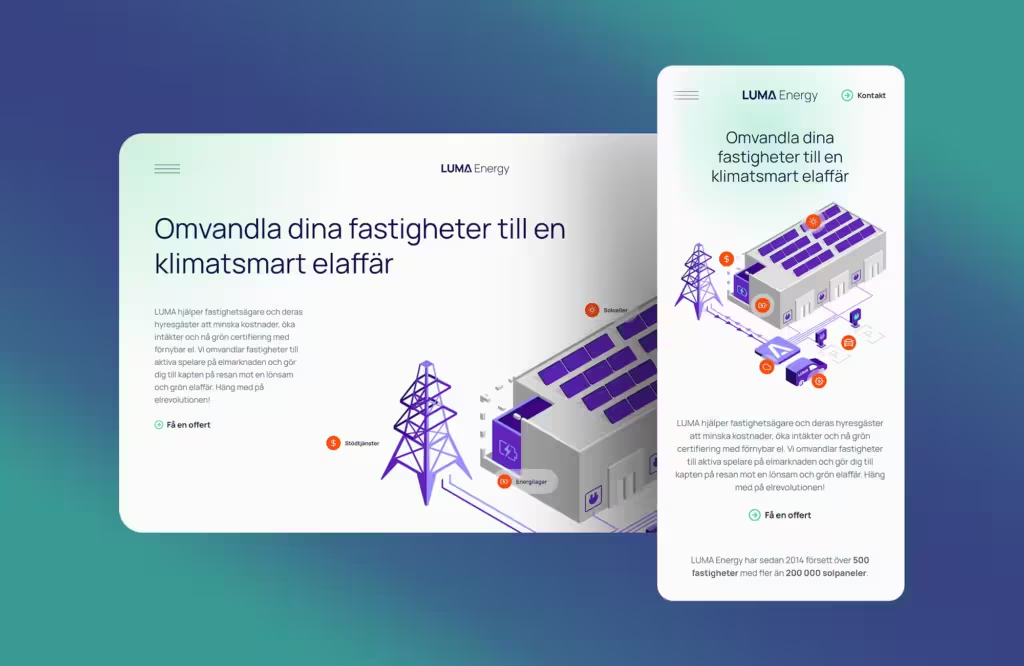01.Tech/ Web-development
SEO agency for effective search engine optimization
The purpose of SEO is to make your website visible to the target audience by ranking high on Google and other search engines.
To create a user-friendly experience, which is also ranked by search engines, we work with search engine optimization on several fronts: Technically, On Page and Off Page.
Search Engine Optimization
SEO agency, yes! But what does SEO mean?
Search Engine Optimization, i.e. search engine optimization, briefly involves optimizing a website both technically and in terms of content in order to appear high in Google’s search results.
Today, Google is by far the most important search engine and there are hundreds of factors that affect a website’s ranking. Many factors are known, but not all and they also have different impact and importance. The pages that are perceived to fit the current search best at the moment rank higher and those that do not, for obvious reasons, end up lower in the results.
It is also important to bear in mind that the ranking often goes up and down over time, which means that search engine optimization is not a one-time effort but a continuous strategic work over time.

Why SEO?
Here are 6 strong reasons why search engine optimization should play a central role in your digital marketing.
01. You are visible when searching on Google. Properly optimized, your website ends up higher in Google’s search results with more organic traffic as a result.
03. Increased brand awareness. With good SEO, your visibility increases and the opportunity to become top of mind with the target group.
05. Measurable results. It’s easy to see which keywords and phrases generate leads and conversion.
02. The buying journey starts on Google. Today, a majority of consumers begin their buying journey with a Google search.
04. You are visible when searching on Google. Properly optimized, your website ends up higher in Google’s search results with more organic traffic as a result.
06. You are visible when searching on Google. Properly optimized, your website ends up higher in Google’s search results with more organic traffic as a result.
Technical SEO
Technical SEO is the heart of your search engine optimization
Technical SEO is about how your website is structured and how well it meets Google’s user experience requirements. Optimized code is critical to ranking higher on Google. We make sure your website is fast, easy to navigate and optimized for mobile users, which is essential to maintaining a fiery and long-lasting love affair with Google.
We optimize your website’s performance
We dive deep into your website’s structure to identify and fix any technical flaws. This includes optimizing load times, ensuring the site is mobile friendly and accessible to all users. By optimizing these factors, we ensure that your website is not only friendly to search engines like Google, but also to your visitors.
CodiCove
Combining SEO expertise with creativity, we create content that engages, informs and converts.
On page SEO
On page SEO – focus on content
Content-driven search engine optimization focuses on the actual content of your website:
texts , images , videos and links. Using relevant keywords and phrases is important, but so is creating engaging and descriptive content. Our copywriters write search engine optimized texts, and our content team produces professional, good content tailored to optimize your digital presence.
Custom strategies for visibility on Google
We understand that every business is unique. That’s why we offer customized SEO strategies that are specifically tailored to meet your unique business goals and needs. We work closely with you to create a customized plan that takes your visibility on Google to the next level.
Measurable results and continuous SEO optimization
We work with full transparency and measurable results. Through continuous monitoring and data analysis , we ensure that your strategy is constantly developed and improved. We analyze traffic, user behavior and conversion rates to ensure that your search engine optimization investment yields the best possible return.
Off page SEO
Gain Google’s trust with Off page SEO
Off page SEO is efforts that are made outside the own website. This is a lot about raising the authority of the website, as reputable websites that are considered trustworthy often rank better on search engines like Google.
The right links increase the ranking on Google
The most important part of Off page SEO is link building, i.e. links you get from other web pages. The stronger the domains that link to you, the better. Unfortunately, the reverse is also true: Backlinks from web pages that Google considers to be of low quality can lower your page’s ranking. We help you get rid of these toxic links so that your website’s ranking potential is not reduced.

Search engine optimization and content is the big winner in the long run
To quickly create quality traffic to your website, we recommend Google Ads . In the medium term, social media advertising is interesting. In the long term, quality content and good SEO are always the big winners, but you have to be patient because the effect is not immediate. A well-balanced combination of search engine optimization, Google Ads and Paid Social is often the best solution.
Frequently asked questions related to search engine optimization
01. Web-development
New website?
Contact Elin!
Mukarram Zargar
Project manager
Email me
111-111-111

